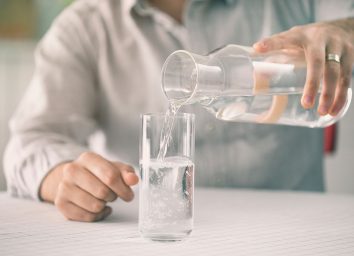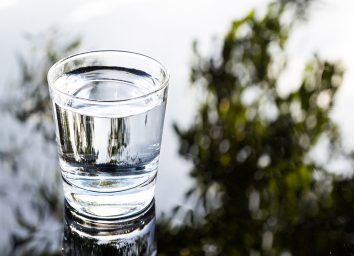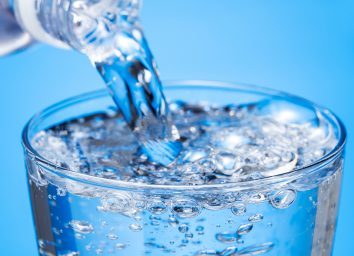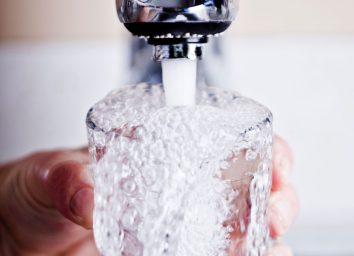5 Secret Dangers of Drinking Bottled Water
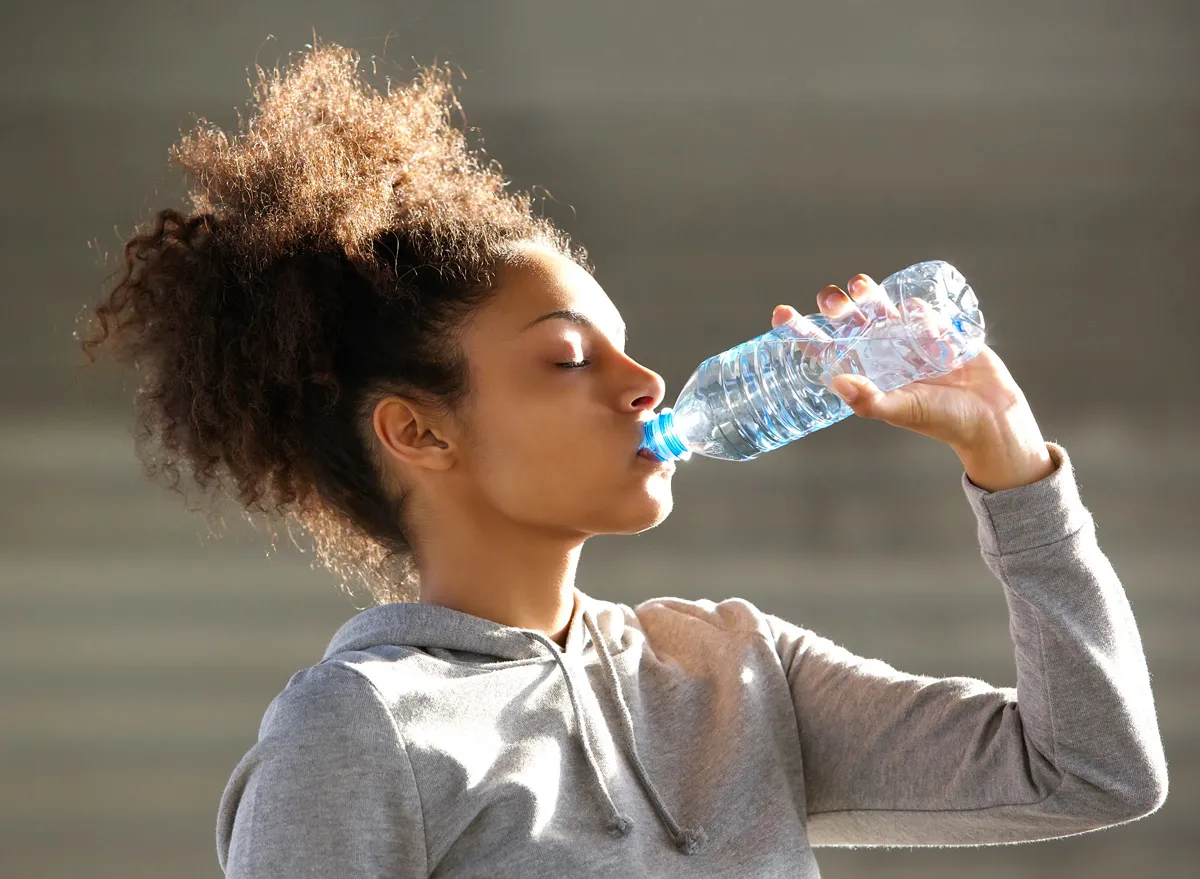
Packaged water is typically marketed as being cleaner and safer to drink than tap water. However, just because it comes tightly enclosed in a bottle instead of flowing out of a decades-old faucet doesn’t make any better for you. Numerous studies have found that some of the fancy bottled stuff (which often boasts that it comes from far away glaciers and streams) may actually contain harmful substances that have the potential to make you sick.
This is in part because of the different regulatory systems that are in place. While municipal water systems must notify their customers of test results showing contamination that could pose an immediate health risk, according to the Environmental Protection Agency, companies that bottle water don’t operate with the same safeguards in place.
In fact, the bottled water industry is largely self-policing. While the FDA requires bottled water to be free of E. coli and sets limits for numerous other contaminants, the agency generally doesn’t test the water itself. Instead, it relies on bottlers to periodically conduct their own tests and to keep those records on hand for FDA inspectors when they visit. In other words, if there’s E. coli in your tap water, you’ll be notified in a timely fashion, but you may be completely unaware if the same bacteria is present in your bottled water.
“Bottled water is marketed as though it’s cleaner than tap, but numerous studies show it’s definitely not cleaner,” explained Sherri Mason, the author of an extensive 2018 study on bottled water and a sustainability researcher at Penn State Erie, The Behrend College. “Based on all the data we have, you’re going to be drinking significantly less plastic from tap water out of a glass than if you go and buy bottled water.”
That’s why you must know about the five secret dangers of bottled water. And for more mistakes you’re making when hydrating there are always these 16 Ways You’re Drinking Water Wrong.
It may contain arsenic

Consumer Reports conducted a recent test of 45 bottled water brands. The results showed that Starkey Spring Water, which has been sold at Whole Foods for five years, had concerning levels of arsenic—a toxic metal.
More specifically, Starkey Spring Water had three times the amount of arsenic than any other brand tested. While the arsenic levels still fell just beneath the maximum limit of 10 parts per billion (ppb), CR believes that level is too high, The Guardian reports. Additionally, this isn’t the first time Starkey has been called out for having arsenic levels that are alarmingly high. In fact, in 2019, one of the brand’s samples clocked in at 10.1 ppb, exceeding the federal limit.
Though drinking one bottle of Starkey is unlikely to harm you, James Dickerson, PhD, CR’s chief scientific officer, noted that “regular consumption of even small amounts of the heavy metal over extended periods increases the risk of cardiovascular disease, certain cancers, and lower IQ scores in children, and poses other health issues as well.” If you want to decrease your risk of heart disease, maybe skip out on the bottled water along with these 50 Foods That Can Cause Heart Disease.
It can be filled with plastic particles
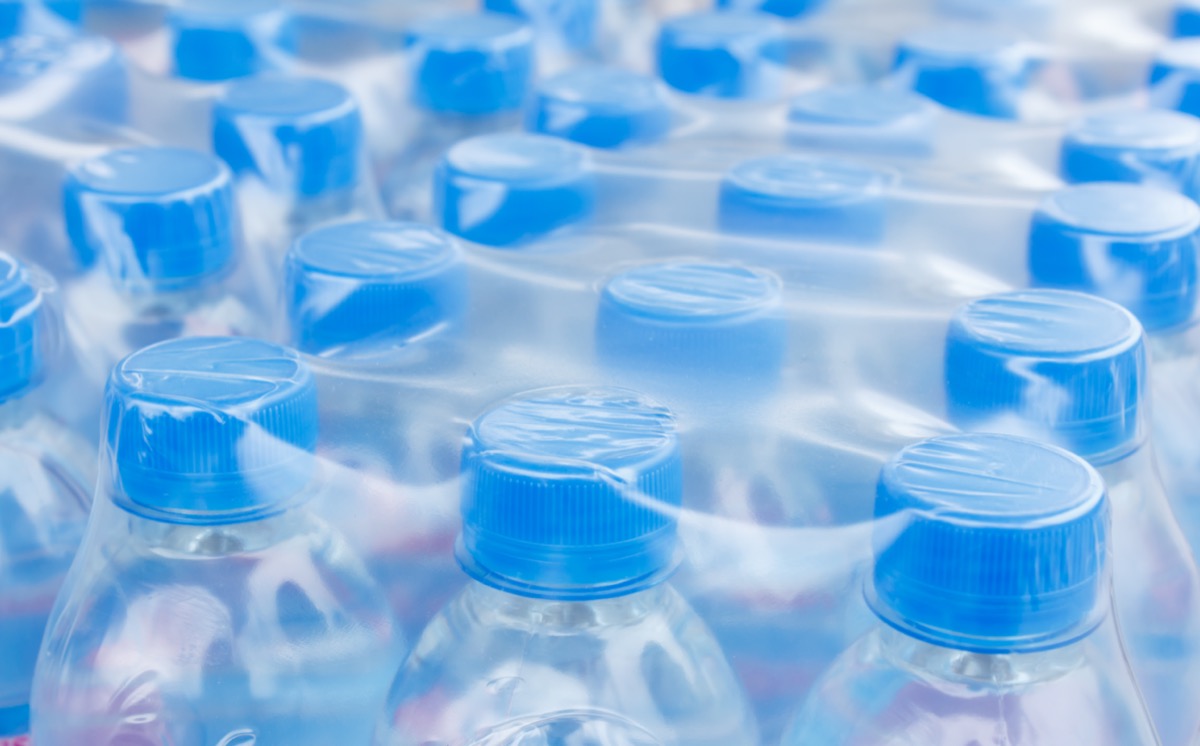
A 2018 study analyzed 259 bottled waters from around the world and found that a whopping 93 percent of them contained “microplastic” synthetic polymer particles. To make matters worse, Mason, who authored the study, said some of the plastic particles weren’t all that small, with some “definitely” visible without a magnifying glass or microscope.
Of the 11 popular brands tested in the study, researchers found that the average plastic concentration was 325 microplastic particles per liter of bottled water. The study’s worst offender, Nestlé Pure Life, had one sample that contained more than 10,000 microplastic particles per liter.
Though Mason noted there isn’t enough data yet to determine how this plastic exposure affects human health, others have said plastic exposure (even though drinking water) can be hazardous to people. “In animal models and in epidemiological studies in humans, we have a correlation between plastic exposures and known health hazards,” Frederick vom Saal, a distinguished professor emeritus of biological sciences at the University of Missouri, told Time in May 2019.
Additionally, data from the Center for International Environmental Law found that plastic poses distinct risks to human health at every stage of its life cycle. Microplastics, like those found in bottled water, are linked to negative health outcomes ranging from cardiovascular disease to cancer and autoimmune conditions.
STAY INFORMED: Sign up for our newsletter to get the latest food news delivered straight to your inbox.
It might be contaminated with E. coli

Certain foods being contaminated with E. coli is (unfortunately) nothing new; however, it’s news that the potentially deadly bacteria may be lurking in bottled water. A May 2018 government report on West Virginia-based Sweet Springs Valley Water Company showed that several months earlier the brand had bottled and distributed water from a source contaminated with the harmful substance.
To make matters worse, Sweet Springs didn’t stop its water production after the bacteria was detected, nor did it conduct any follow-up tests to determine if subsequent water bottles were E.coli-free.
In June 2015, 14 brands of bottled water were voluntarily recalled following a potential E.coli contamination after a water bottling company that supplied the brands discovered that one of its spring water sources tested positive for the bacteria. The brands that were impacted included 7-Eleven, Niagara, ShopRite, and more. If you want to make sure you don’t have to experience the 7 Side Effects of Not Drinking Enough Water, perhaps you should opt for tap.
It could have mold
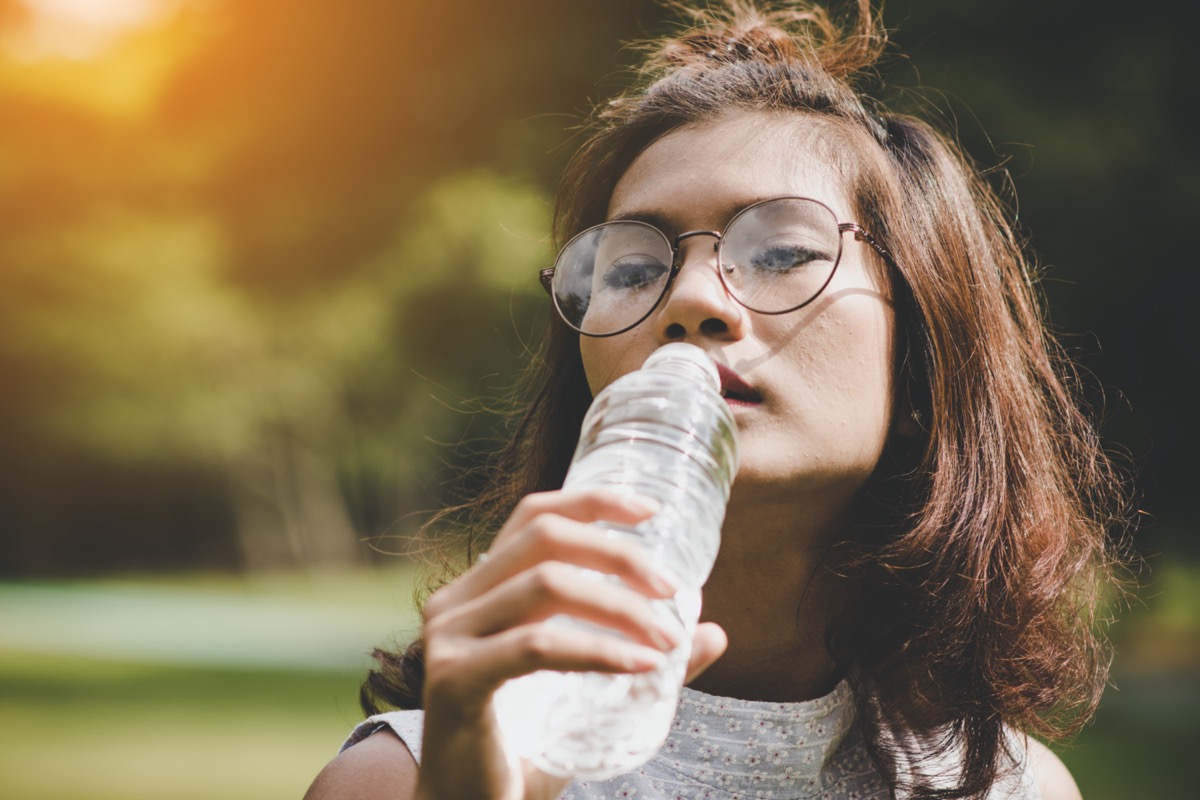
Though mold in bottled water isn’t as easy to spot as moldy bread or cheese, it can occur. In December 2017, for example, the FDA released a consumer alert regarding Comforts FOR BABY’s Purified Water with Fluoride Added noting that the bottled water brand was recalled due to mold. Kroger supermarket chain apparently tested the water itself after receiving numerous complaints from customers and found that it contained Talaromyces penicillium, a mold that can cause allergic reactions and feverish symptoms if inhaled or touched.
What’s more? An October 2006 case study about fungi in bottled water found various types of mold to be prevalent in some water bottling plants. The fungus was especially prolific during the warmer months, particularly May and June. During those months there were also more fungi present in the water itself, indicating that for the duration of those times of the year when fungal contamination is high, the necessary filters should be changed on a more regular basis in order to prevent mold from getting into the water supply.
It can be laced with harmful chemicals/carcinogens
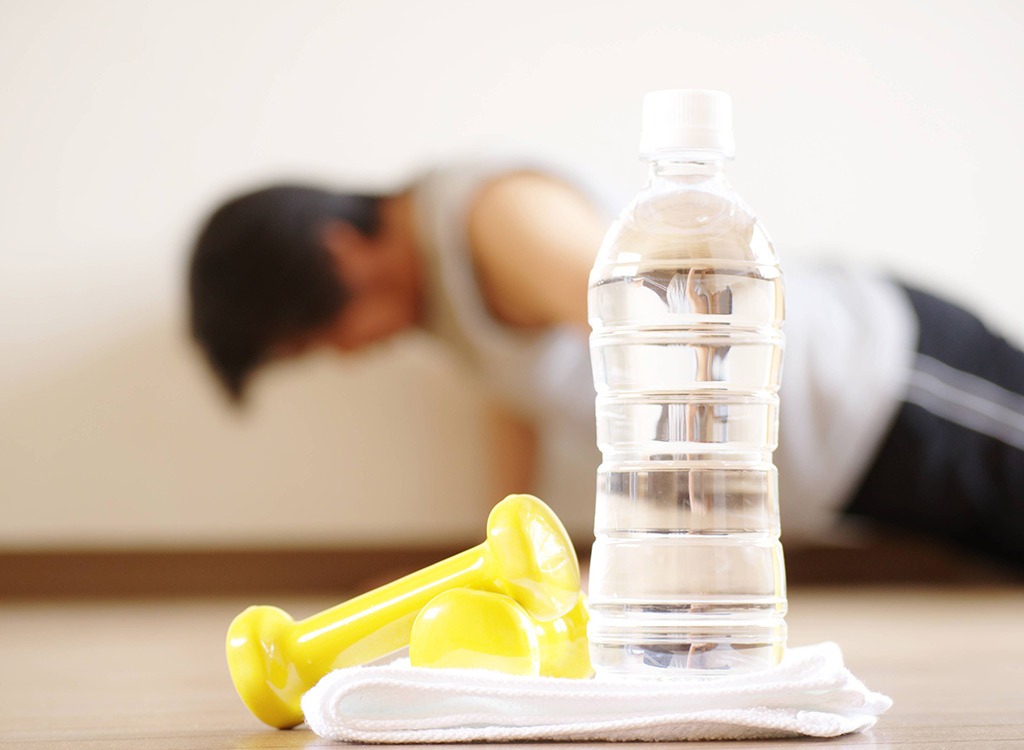
An October 2018 study published in the journal Water Research found that phthalates, which are substances added to plastics that can be associated with an increased risk of cancer, are often present in bottled water. More specifically, the data analyzed five representative phthalates in bottled water across 21 countries and found that while the measured concentrations were not a serious concern for public health, significant estrogenic effects were possible.
Many trihalomethanes, such as chloroform and bromoform, are also considered carcinogenic, yet they are often used as solvents or refrigerants. According to a 2008 report from the Environmental Working Group, various trihalomethanes were detected in four brands of bottled water, including Sam’s Choice and Acadia, at two to three times greater levels than the bottled water industry’s voluntary standard of 10 ppb.
Bromate, a suspected human carcinogen is also occasionally found in bottled water. According to Consumer Reports, an FDA inspector issued a citation to a Colorado bottler, Deep Rock Water Company, in 2011 after a review of test results showed the company had produced water with 20 parts per billion of bromate, which is twice the legal limit. Surprisingly, the agency did not collect any samples to test and confirm that the contamination was eventually corrected, and no recall was issued. Unfortunately, contamination isn’t limited to bottled water. Read more about it in The Scary Hidden Ingredient In Protein Powder You Need to Know About.
